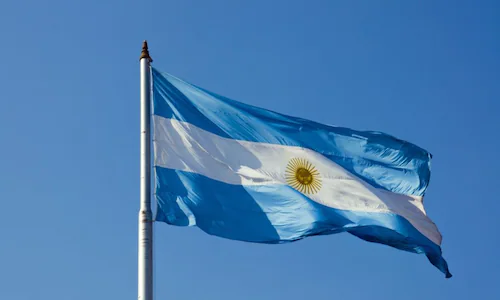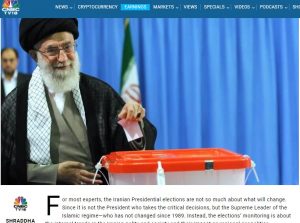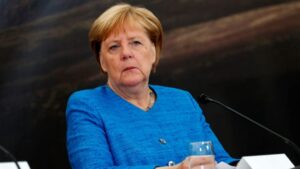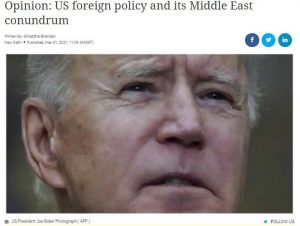Argentina is at the precipice of political and social uncertainties — Argentine legislative elections are due in November 2021 and a lot is at stake for the incumbent. Already, tensions are rife within the government since the current President Alberto Fernandez lost the September open primary elections. A mirror test before the November midterm elections, a loss in the primaries indicates a trust deficit among the people. While the reasons for this deficit include falling social indices and deteriorating economic conditions, there is also significant internal party dissent and revolt that has worsened the situation.
Fuelled by the loss in the primary elections, the country’s vice president, Cristina Fernandez de Kirchner (CFK), has openly criticised the President. She has stated that instead of taking this loss as a warning signal, the party Front of All (Frente de Todos) was nonchalant and indifferent. Incidentally, the party was formed in 2019 as a coalition to facilitate Alberto and CFK’s political ambitions. CFK has been further critical of the inept fiscal policies of the government — the country has a poverty rate of 42 percent, an unemployment rate of 10 percent and an inflation rate averaging 30-32 percent, one of the highest in the world. In addition to this, Argentina has a debt of more than USD 44,000 million with the IMF.
Some experts feel that CFK has vested interests in belittling the government — she was Argentina’s President from 2007-15 and still enjoys sizeable support within the party. This support was evident when five of the ministers close to CFK submitted their resignations right after the September primary election losses. However, with Argentina’s recession (since 2018) and the pandemic further aggravating the situation, the reality is for all to see.
Political analysts believe that CFK played a ‘masterstroke’ in the last presidential elections (2019), leading to Alberto Fernandez becoming the President. Incidentally, Fernandez was Nestor Kirchner’s (CFK’s husband and former President of Argentina) campaign manager and chief of staff. When Nestor’s presidential term got over, CFK decided to run for the elections and became the President in 2007. During the initial years of CFK’s presidential rule, Fernandez worked alongside her, gradually becoming a strong critic of her rule.
However, the dynamics changed after ten years, when Fernandez and CFK joined hands to oust the then incumbent President Mauricio Macri in 2019. Macri’s (leader of the Republican proposal party) tenure saw high poverty rates and an economic downturn in the country. There are innuendoes that this was CFK’s act of revenge against Macri — since she was not allowed another consecutive term (in 2015) and left office amidst a slew of scandals. The scandals included fraud and corruption charges and the death of a special prosecutor.
CFK’s chances of winning in 2019 were slim, and hence she decided to give the pedestal to her former aide and confidante while ensuring that she has a significant role to play. The significant role manifested itself recently when CFK managed to sway the emotions in the cabinet against the incumbent President. This is where her supposed vested interests have played up and gotten her the platform to have a more prominent role in the upcoming elections.
If the September 2021 results are repeated in November, Fernandez’s government can lose the Senate majority and its largest minority position in the lower Chamber of Deputies – leaving the President susceptible. Currently, there is rising public dissent over the turmoil in the economy – the recession has gone on for too long, and employment is shrinking. A lot of groundwork also has to be done within the ethos and beliefs of the party, which is essentially a left-leaning Peronist party. Both CFK and Fernandez are Peronists — a reference to populist and nationalist policies propagated by Juan Peron, which have been the mainstay of the country’s politics since the 1940s.
However, these two leaders adhere to varying degrees of ‘unfavorable and less business friendly’ Peronisms –Fernandez and CFK had their share of differences with other stakeholders like the farmers’ lobby and investors. For instance, there have been reports of the government clashing with investors and the farm sector. Argentina has a powerful agriculture lobby (one of the world’s largest exporters of soy), which was unhappy when Fernandez was chosen as the President. As soon as he came to power, Fernandez raised the farm taxes to fill in the state coffers — a move that saw farmers reaching Buenos Aires to protest.
But what has worked in Fernandez’s favour is that the farming lobby is less united than a decade ago and there is dwindling public support for their cause. Certain farming divisions are also willing to work with the government, but divisive politics within the government is hampering Fernandez’s position. Other issues also affect his political stature– his acrimonious relationship with the church (he wants to legalise abortions) and his inability to make the investors happy. In addition to this, the country has seen several protests in the last year and a half — strong indications that the common person is also not on the government’s side.
While Fernandez’s administrative ethos is center-left driven, CFK’s coterie supports her ‘kirchnerisms,’ including opposition to neoliberal policies. There is little doubt that the current President is losing the voter’s confidence, but who benefits from this conundrum? Analysts say that probably CFK still has her presidential ambitions burning — right now, with Fernandez reshuffling his cabinet, CFK is waiting for an opportune moment to either support or rally against the government. In the current situation, the November midterm elections will serve as a litmus test for both Fernandez and CFK. Either way, the continuing political uncertainty will further hamper much-needed economic and social reforms.
—Bipasha Bhardwaj is Co-Founder and COO of Intelligentsia Risk Advisors; Shraddha Bhandari is co-founder and CEO of Intelligentsia Risk Advisors, a strategy consulting firm. Views expressed are personal
Resource: https://www.cnbctv18.com/world/view-will-the-alberto-and-cfk-political-rivalry-cost-argentina-dearly-11156022.htm





